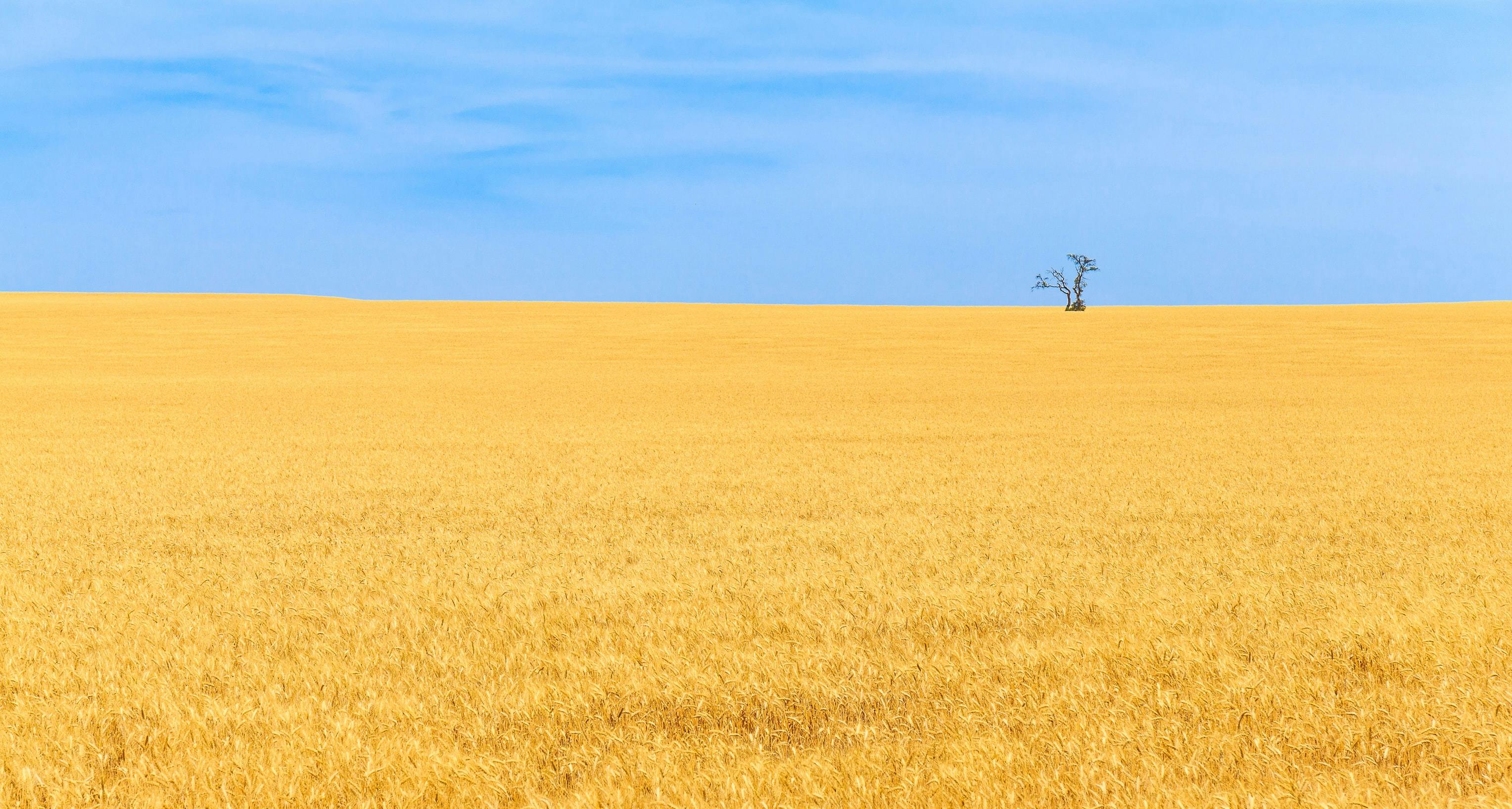One Year Into the War: Food Security versus Sustainability?
Introduction
The outbreak of the Russian war in Ukraine has brought food security to the forefront of the political agenda. The supply chain disruptions and the increased prices for production inputs shed light on the EU’s need for enabling sustainable food systems to better withstand endogenous and exogenous shocks and fairly distribute their burden.
The impact of the war on the global agri-food sector has been significant, exacerbating the economic and financial challenges faced by all actors. Staggering production costs and supply disruptions gave way to a new contentious debate on the environmental sustainability objectives of the Farm to Fork Strategy, the EU’s agri-food flagship initiative. The all-present food security argument is now part of (almost) every policy debate and sets the ground for emergency derogations and measures which risk weakening EU’s drive towards environmental, social and economic sustainability.
How the war impacted agri-food systems
As repeated throughout the year, food security, in terms of availability of food, has not been at risk in the EU. However, inflation has transposed the problem into an affordability crisis: with global food prices in 2022 hitting a record high since 1961 according to the FAO’s latest food index and EU food price inflation averaging around 18%. Low-income food import-dependent countries such as Afghanistan, the Republic of Sudan, the Syrian Arab Republic, Mauritania, Yemen and Pakistan have been largely more affected than any other by the repercussions of this conflict.
Considering the circumstances, it has become evident that the European Union must take action to alleviate the financial strain placed on agri-food producers. To this end, policy measures have been implemented with the aim of protecting food security and enhancing the resilience of food systems, both within the EU and beyond. From farmers to producers, amidst concerns for future food availability, many pre-empted or welcomed the call from the EU institutions to increase EU productivity and to make up for the loss in globally traded goods coming from Ukraine and Russia.
Food security and green change: it's what's behind the arguments that counts
The additional challenges have put a new twist to discussions about the future of the European Union’s agri-food systems. Productivity concerns, questions of availability, affordability and independence have gained momentum, while on the other hand environmental sustainability objectives have been put into question by some. The war has fuelled the already ongoing debate on the feasibility of the Farm-to-Fork Strategy.
The narrative built around the need to “feed the EU, and the world” seems to highlight a stark opposition between meeting both food security and sustainability objectives, at least in the short-term. As already stated in EJD’s last year’s paper, GRAPE 3 “Transforming the European agri-food system: now more than ever a matter of necessity”, it makes little sense to play off resilience and sustainability against each other; the green transformation of Europe’s agri-food systems is inevitable, and its success requires that resilience and sustainability demands build and reinforce each other.
With the war highlighting the dependence on imports of certain essential input commodities (fertilisers, energy, gas) as one of the critical weaknesses of the EU agri-food system, it seems to be common understanding that the EU needs to increase its “food sovereignty”, its “strategic autonomy”, and its resilience. Albeit the agreement on these ends of EU’s interventions, the identification of means through which to achieve them is a source of political disagreement. Indeed, analyses of the causes and effects of the challenges posed by the war vary widely. This can be seen, for instance, in the heated discussion about the new regulation on the sustainable use of pesticides (SUR), the push for a new (less restrictive) framework for new genomic techniques (NGTs) or the use of CAP funds. Greening targets are increasingly framed as an additional financial burden and a risk to productivity.
Over the past year, we have seen the food security argument increasingly dominating all debates around Farm-to-Fork initiatives. Food security is however not always a straightforward argument.It is crucial to look behind the offered interpretations of food security and to point out where they are misleading. A case in point is the strained global fertiliser situation. In view of the limited global accessibility of fertilisers, ensuring to maintain fertiliser supply for EU production means even less fertiliser availability in other parts of the world, which could have an even worse impact on global food security. In the SUR discussions, food security is put forward to criticise the reduction targets, thereby shifting the debate to questioning the target itself instead of searching ways to achieve it (knowing that pesticides have a devastating effect on biodiversity and soil health and therefore future productivity and food security).
Lessons to be drawn
When it comes to addressing the challenging consequences of the war for European farmers, food producers and consumers, the question is whether to treat the symptoms or the causes. A lot of the problems that have arisen throughout the past year are not only due to the war, but linked to the current structure of the EU’s food system – which is neither economically, nor socially sustainable (read EJD’s analysis here – GRAPE 1). Supply shortages and price hikes were only “the drop that made the agri-food bucket overflow”
We therefore should ask how environmental, social and economic sustainability can work together, to support this transition towards sustainable agri-food ecosystems. The Commission’s analysis of drivers of food security published at the beginning of the yearalong with a recent FAO report on drivers of change for sustainable food systems, clearly explain this game of synergies.
Defining food security and sustainability in this multidimensional way will include trade-offs which can and should not be ignored or hidden. There are costs to pay for the green and fair transition and these need to be discussed in a transparent and open manner. However, these costs should not be used as an argument against the transition. What all stakeholders and decision-makers need to commit to is an open discussion about how to best address these trade-offs.
In the search for new innovative solutions that can support the transition, the EU should also be careful not to fall back into the same dependency/power-structure trap that current agri-food systems are struggling with
“Feeding the world”? – The EU’s part to play for global food security
The EU's role in addressing global food security challenges exacerbated by this war is nothing short of crucial. Besides emergency responses such as the revamped support for food aid programmes and engagement in keeping trade flows going, there is the question of the EU’s role in “feeding the world”. The answer may lie in the EU's potential to generate more production, considering that its input-efficiency is higher than in other parts of the world. Caution is required, however. While appealing, this solution is not sustainable. The focus should be on promoting sustainable production capacity and local markets in developing countries that are heavily reliant on imports, thus threatened by subsistence farmers' vulnerability to market fluctuations.
In this way, the EU could support these efforts beyond traditional food aid and agri-food trade by playing a pivotal role in enhancing sustainable production capacity and local market growth in developing countries. EU’s priority should be making food accessible and not just available, everywhere, and to all people. As with any global challenge, a multifaceted approach that considers all relevant factors is essential. It avoids the blindsidedness of a single, narrow, perspective as it allows for the development and integration of more comprehensive and sustainable solutions. By adopting a more balanced approach focusing also on reshaping food demand, the EU can become the trailblazer in combating food insecurity and promoting sustainability in a world that is facing mounting challenges in both arenas.
Stay tuned for more on this topic
In the next paper of our “Greening Agri-Food Policy in the European Union”(GRAPE) series, we examine how the war has exacerbated certain narratives and what are the implications on the effective implementation of the European Green Deal. For a deeper understanding of the crucial issues and more on challenging simplistic dichotomies, we invite readers to stay tuned for our upcoming paper. To secure a nourishing future for all, sustainability is the key ingredient we must cultivate together.




